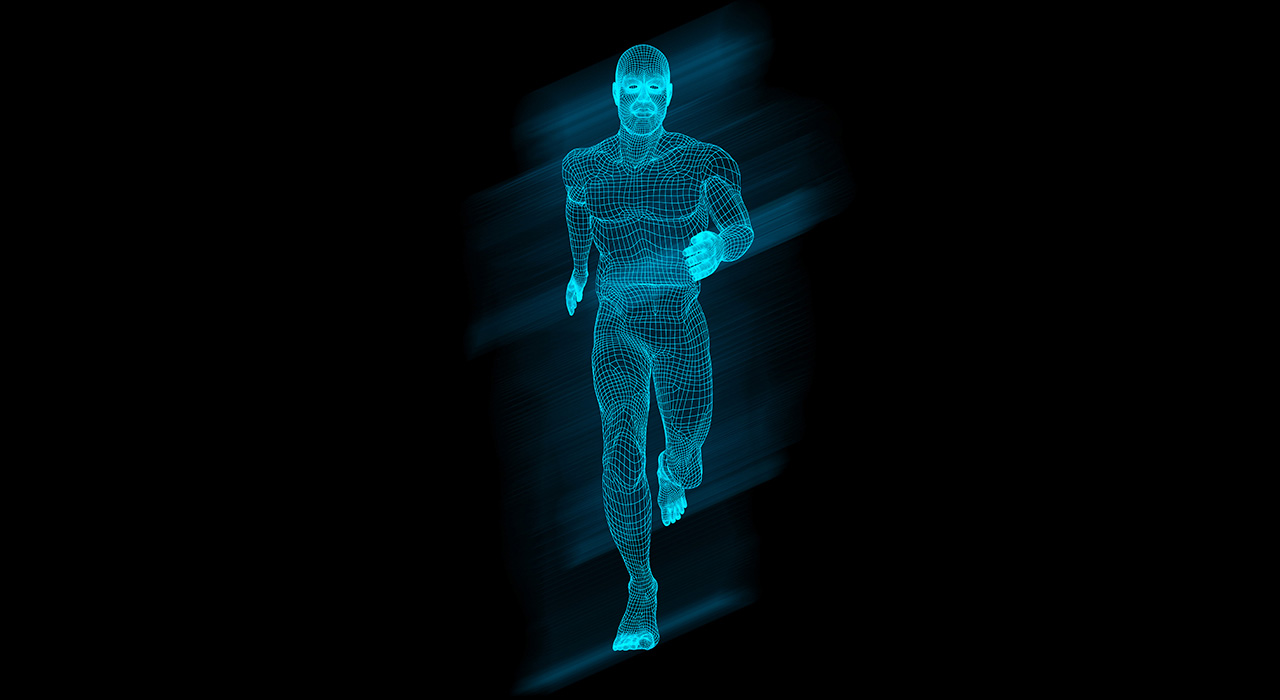2 Minute Read
AI is being integrated into fitness apps and wearables, providing users with a more personalized, effective, and engaging experience. Based on research data, the global fitness app development market was valued at USD 1.3 billion in 2022 and is anticipated to grow at a CAGR of 17.6% from 2023 to 2030.
AI-powered personalized health and fitness apps are emerging rapidly, these apps are using artificial intelligence to not only revolutionize individual workouts but provide hyper personalized diet plans to ensure you're eating right with recommendations based on your goals, dietary preferences, and health status.
More importantly, AI is empowering people to take control of their fitness journeys.
Let’s take a look at some of the many ways AI is currently being used in this industry:
AI personalized workouts and training plans
One of the most useful impacts of AI in the fitness industry is its ability to create personalized training plans and workout routines. AI algorithms will process an individual’s fitness goals, current fitness level, and any limitations or preferences.
AI can design workouts tailored to the individual’s specific needs, whether it’s increasing strength, losing weight, building muscle or improving cardiovascular fitness.
AI in diet planning
Diet planning is a core aspect of personalized health and fitness.
The use of AI in fitness applications adds extra value to your diet and meal planning efforts. AI-driven diet planning tools help you if you're willing to accomplish a certain weight or fitness objective. These apps enable users to choose their preferred diet plans from non-vegetarian, vegetarian, carbohydrate, macros or protein-rich diets. The AI will help you plan the right calorie intake, map your progress, hunger, predict weight outcomes and offer personalized recommendations replicating real-life coaches.
AI virtual fitness coaches and trainers
AI Virtual trainers can create workout plans, offer training and posture corrections by using AI motion analysis to judge clients' exercise form and provide motivation through text or voice interactions. AI has paved the way for virtual fitness coaches and trainers, with more accessible and affordable ways to train virtually that is highly personalized for the user. With AI-driven coaching apps and platforms, users can access expert fitness advice and guidance without the need for in-person sessions.
AI wearables and smart fitness clothing
AI-powered wearables can offer personalized fitness recommendations based on real-time data with garments that can monitor heart rate, track fitness progress and regulate body temperature. AI enabled smart clothing can analyze and respond to the wearer’s needs in real-time, providing personalized recommendations and adjustments. As an example, if a user’s heart rate remains elevated for an extended period, the device may suggest taking a break or adjusting the intensity of their workout to prevent overexertion. This real-time guidance helps users optimize their workouts and minimize the risk of injury. AI-powered clothing and devices can adapt to the wearer’s environment, changing its properties to provide optimal comfort. This can include adjusting the materials breathability in response to temperature changes or altering the garment’s shape to improve the wearer’s posture. Features like these enhance the wearers experience and also extend the lifespan of the clothing, reducing waste and promoting sustainability.
AI body analysis and scanning
AI-powered preventative healthcare body scanners are on the rise. AI technology is intended to be used for detecting disease earlier as part of a preventative measure. AI helps detect underlying conditions based on the data from the scanner’s sensors. The algorithms the system uses can also help predict issues such as skin conditions, risks for cardiovascular disease, heart conditions, metabolic issues and diabetes. AI technology can also be used to build very detailed 3D images of an individual's physique. Then the AI can examine these images to provide advice on which areas of the body need immediate attention and improvement and areas that need strengthening to avoid potential injuries.
AI gamification
AI is being used to catapult immersive workouts and move-to-earn technology within apps to better drive engagement and rewards. The evolution of virtual interactive fitness experiences has transitioned from Jane Fonda video tapes – or fitness 1.0 – through to live streaming and on-demand access with fitness 2.0.
Gamification in AI refers to the integration of artificial intelligence (AI) technologies with gamification strategies. This combination results in a more personalized, adaptive, and engaging experience for users than gamification on its own.
Ultimately the possibilities of AI in the fitness industry are enormous and offer numerous opportunities and new revenue streams for health and fitness professionals. When AI tools are used in the right way, you can strengthen your product and service offering and provide a better experience for your clients.
It's important however to remember to pay attention to some considerations when using AI in your fitness business including thoroughly evaluating the goals and needs of AI, protecting your customers privacy at all times and selecting AI tools that integrate seamlessly with your existing systems, such as your customer management system, marketing platforms, ecommerce, finance and HR systems and physical products such as fitness equipment and merchandise available.
For more information on how you can build a responsible AI strategy for your fitness business, talk to us today.

